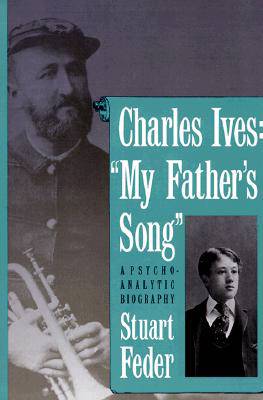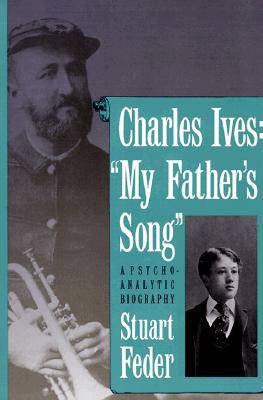
- Afhalen na 1 uur in een winkel met voorraad
- Gratis thuislevering in België vanaf € 30
- Ruim aanbod met 7 miljoen producten
- Afhalen na 1 uur in een winkel met voorraad
- Gratis thuislevering in België vanaf € 30
- Ruim aanbod met 7 miljoen producten
Omschrijving
"A sound of a distant horn
O'er shadowed lake is borne
--my father's song."--Charles Ives
Charles Ives, perhaps the quintessential American composer of the twentieth century, drew on his childhood experiences in a small New England town in his music. Through his close relationship with his father, George, a Civil War bandmaster, Ives developed a powerful feeling for nineteenth-century rural America. This book--the first full-scale psychoanalytic biography of a major composer--examines the lives of the two men and shows how a knowledge of their relationship as father and son, teacher and pupil, is central to an understanding of Ives's work.
Stuart Feder, a psychoanalyst with training in musicology, demonstrates that George exerted so pervasive an influence on Charles's creative life that Ives's music may be seen as the result of an unconscious fantasy of posthumous collaboration between father and son. The music bears George's mark, not only in its incorporation of hymn tunes, parlor ballads, Civil War marches, and other homely sources that derived from his youth, but also in its use of technical musical devices attributed to George. Moreover, the span of Ives's creative life reveals another connection to his father: Charles's musical productivity began to wane in his forties, as he approached the age at which his father died. Dr. Feder examines the influence of George's teaching and storytelling on Charles's years as a composer. Ives's later decline is traced psychologically and medically. Using Ives's music as an essential part of his data, Dr. Feder demonstrates how music can illuminate and be expressive of the inner life of its creator.
Specificaties
Betrokkenen
- Auteur(s):
- Uitgeverij:
Inhoud
- Aantal bladzijden:
- 368
- Taal:
- Engels
Eigenschappen
- Productcode (EAN):
- 9780300054811
- Verschijningsdatum:
- 24/06/1992
- Uitvoering:
- Hardcover
- Formaat:
- Genaaid
- Afmetingen:
- 165 mm x 243 mm
- Gewicht:
- 816 g

Alleen bij Standaard Boekhandel
Beoordelingen
We publiceren alleen reviews die voldoen aan de voorwaarden voor reviews. Bekijk onze voorwaarden voor reviews.











